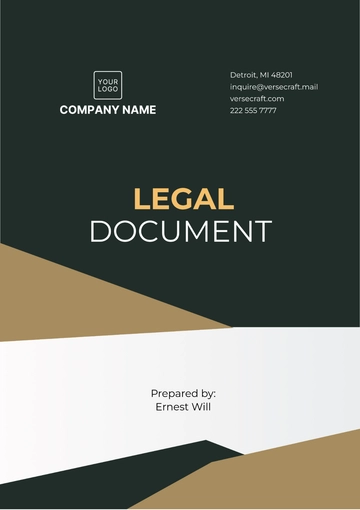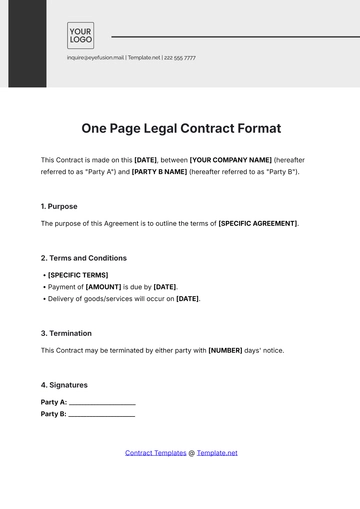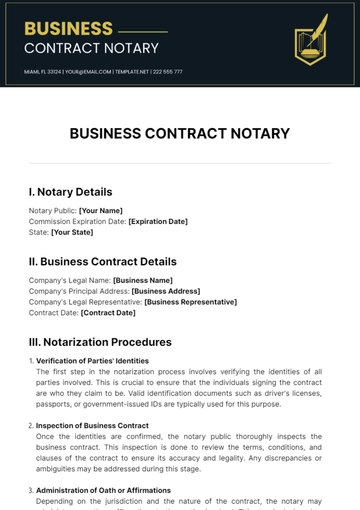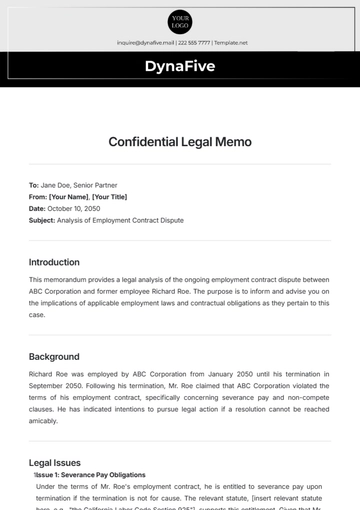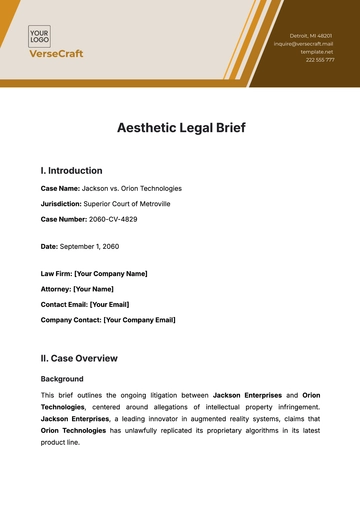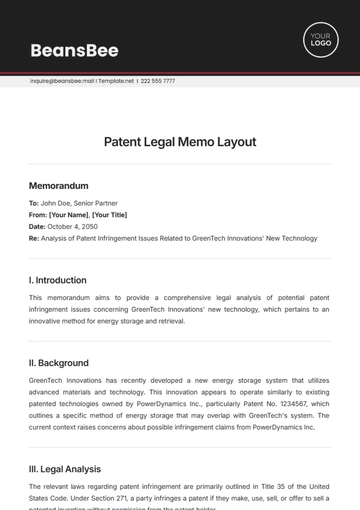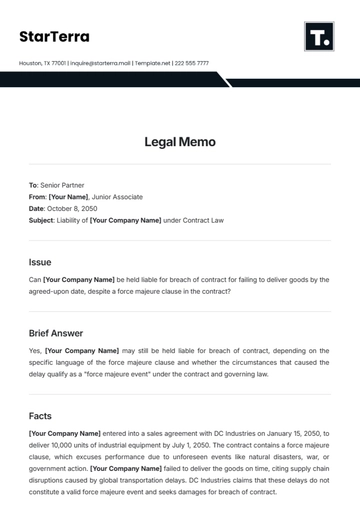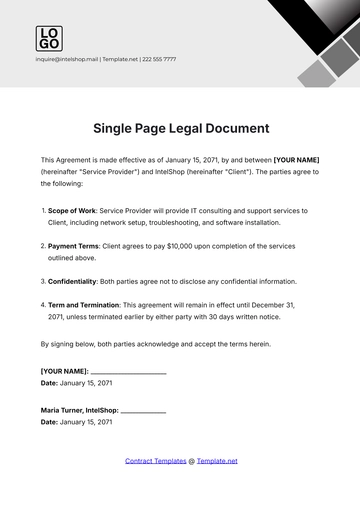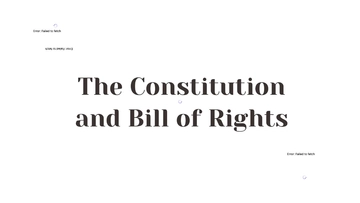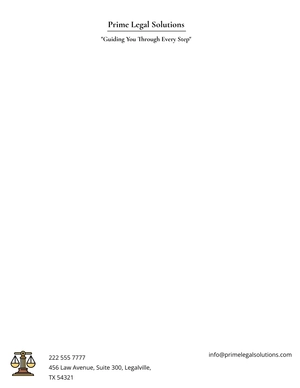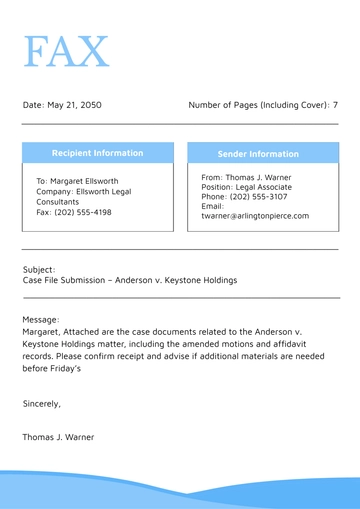Free Lesson Case Brief

I. Case Information
Case Title: [Adams v. Taylor]
Case Citation: [2055 WL 123456 (Supreme Court 2055)]
Court: [Supreme Court of the United States]
Date of Decision: [April 15, 2055]
Judge(s): [Justice Emma Powell]
Parties: [Liam Adams] v. [Wyatt Taylor]
Legal Issue(s):
Whether the trial court's dismissal for lack of subject matter jurisdiction was proper.
Whether the plaintiff's claim meets the requirements for diversity jurisdiction.
Facts of the Case:
[Liam Adams], a [resident of New York], filed a lawsuit against [Wyatt Taylor], a [resident of California], alleging breach of contract.
The dispute arose from a contract for the sale of real estate located in [Florida].
[Adams] claimed damages exceeding [$75,000], asserting diversity jurisdiction under [28 U.S.C. § 1332].
II. Procedural History
A. Trial Court Proceedings:
The trial court dismissed the case for lack of subject matter jurisdiction, finding that the amount in controversy did not exceed the jurisdictional threshold.
B. Appellate Court Proceedings:
[Adams] appealed the trial court's decision to the Court of Appeals for the Second Circuit, which affirmed the dismissal.
The case was subsequently petitioned for certiorari to the Supreme Court.
III. Legal Analysis
A. Legal Principles
Diversity jurisdiction requires complete diversity of citizenship between the parties and an amount in controversy exceeding [$75,000].
The party asserting diversity jurisdiction bears the burden of proving jurisdictional facts by a preponderance of the evidence.
B. Precedents
[Adams v. Smith, 2048 WL 654321 (Supreme Court 2048)]
Similar case where jurisdiction was upheld due to the nature of the claim and the amount in controversy.
C. Arguments
[Adams] argued that the value of the real estate at issue exceeded [$75,000], justifying federal jurisdiction.
[Taylor] countered that [the contract's value did not meet the jurisdictional threshold and that the case should be remanded to state court.]
D. Court's Decision
The Supreme Court affirmed the lower courts' rulings, holding that [Adams] failed to establish the requisite amount in controversy for diversity jurisdiction.
[Justice Powell], writing for the majority, emphasized the importance of strictly interpreting jurisdictional requirements to avoid federal courts adjudicating claims outside their authority.
E. Significance
This case underscores the significance of carefully assessing jurisdictional requirements in federal court cases, particularly regarding the amount in controversy in diversity cases.
IV. Lessons Learned
A. Key Takeaways
Plaintiffs must provide sufficient evidence to establish federal court jurisdiction, especially regarding the amount in controversy.
B. Practice Pointers
Attorneys should meticulously calculate the value of claims and consider jurisdictional implications before filing lawsuits in federal court.
C. Future Considerations
Legal practitioners should stay updated on jurisdictional standards and recent case law developments to effectively navigate federal court procedures.
V. Conclusion
This case underscores the critical importance of meticulously assessing jurisdictional requirements in civil cases. Failure to establish proper jurisdiction can result in dismissal or delays in legal proceedings. Attorneys must diligently verify the jurisdictional basis of their claims and provide adequate evidence to support federal court jurisdiction when necessary.
- 100% Customizable, free editor
- Access 1 Million+ Templates, photo’s & graphics
- Download or share as a template
- Click and replace photos, graphics, text, backgrounds
- Resize, crop, AI write & more
- Access advanced editor
Discover the ultimate tool for legal professionals and educators on Template.net. Our Lesson Case Brief Template offers an editable and customizable format, ensuring seamless adaptation to your needs. Crafted with precision, it's easily editable in our Ai Editor Tool, providing unparalleled convenience and efficiency in summarizing legal cases.
